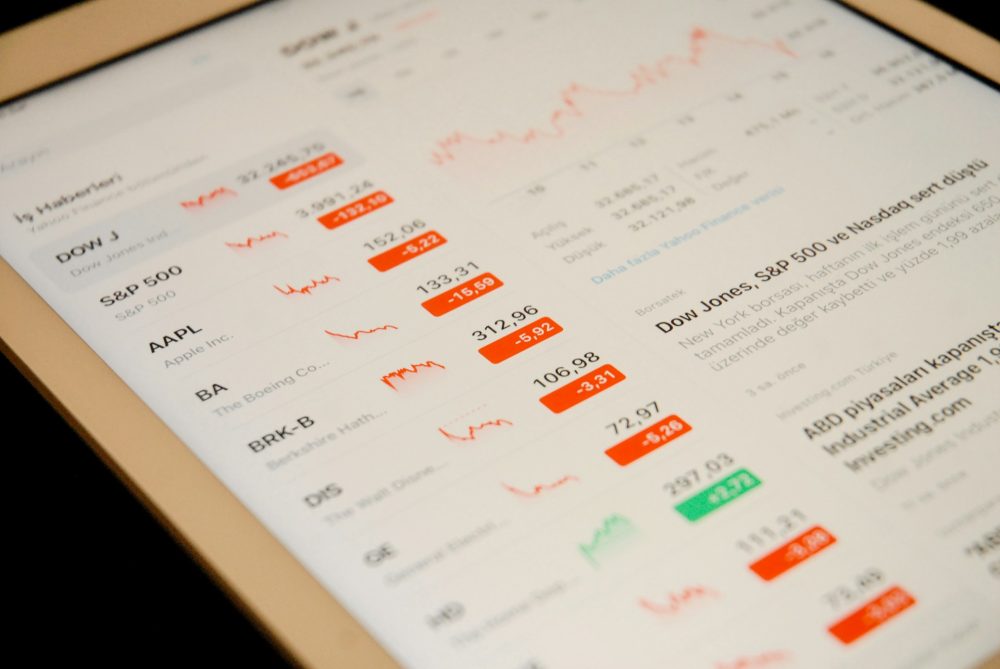Business
Innovative businesses are born from necessity
The most innovative businesses of today were created during periods of economic recession, or boomed during a difficult economic situation. Airbnb, Uber, Groupon and Square are just a few examples in this respect. Even though Skype was created in 2003, the business reached its peak during the Great Recession of 2007 – 2009. Now is the perfect time to take a look at your business and innovate.

Innovation comes in many packages created to address an issue or make our lives easier in some way. Innovation fills a gap. If something is missing, someone somewhere will see it as an opportunity to make things better.
That is why we see innovation blossom in times of great change or discomfort. The Great Recession from 2007-2009 can be seen as the catalyst for some of the biggest businesses in our modern times. Uber was created in 2009 and succeeded due to the high unemployment rate that led to the adoption of ride-sharing and driving uber.
Airbnb was founded by two roommates who wanted to rent out their loft and the idea of cheap, temporary housing flourished after the housing market crashed. Groupon was founded in 2008 to offer the best deals to the largest number of people and Square, a credit card reader app that works with your iPhone, was a necessary exchange for a cash industry.
When the world is forced to change quickly to deal with a crisis, their landscape completely shifts creating cracks and crevases that need to be filled. Sometimes with extreme innovation, entirely new industries are created. This recession is no different.
During our economic instability you should be asking yourself where are the holes? Where are the gaps for opportunity?
Delivery services
During this crisis people are forced to stay home. A trip to the store requires a face mask, gloves, hand sanitizer, a fingertip to elbow wash afterwards, and a whole lot of stress and anxiety. Most people don’t want to deal with it.
But how will people reconcile this change in their lives? As a society we went from having everything at the tip of our finger, one short car ride from any Target or Costco. But now we don’t want to leave our houses for even the essentials. This is the gap—a space for opportunity. Finding a way to bring all the essentials to the consumers home, quicker, cheaper and easier than what’s already being done will rely on true innovation.
Tech that brings us together
Tech is something most people still have access to from their homes. There is even a wifi bus that is parking in lower income neighborhoods to offer wifi to everyone who has to work from home (beautiful innovation right there!).
While we have tech at our disposal, people are really missing human connection. Skype was founded by Jonas Kjellberg in 2003, but had a huge boom during the great recession. The idea for this video conferencing was to allow people to make face-to-face calls through tech they already had. Bringing people together is an area where innovation is needed now. Pulling inspiration from Kjellberg’s approach, what can we utilize that’s already in place to bring people together?
E-commerce
If stores weren’t selling online, they are now or they aren’t selling at all. E-commerce has boomed during this recession with everyone shopping from the safety of their homes. Subscription boxes are popping up all over the country right now because people value the ease and excitement of surprise. What can you bring to your consumers through an online experience? How can you change the current online experience to be easier for everyone?
Take a long, hard look at your industry-maybe peak into other industries too-and find the gap you want to fill to create world changing innovation.
—
(Featured image by Startup Stock Photos via Pexels)
DISCLAIMER: This article was written by a third party contributor and does not reflect the opinion of Born2Invest, its management, staff or its associates. Please review our disclaimer for more information.
This article may include forward-looking statements. These forward-looking statements generally are identified by the words “believe,” “project,” “estimate,” “become,” “plan,” “will,” and similar expressions. These forward-looking statements involve known and unknown risks as well as uncertainties, including those discussed in the following cautionary statements and elsewhere in this article and on this site. Although the Company may believe that its expectations are based on reasonable assumptions, the actual results that the Company may achieve may differ materially from any forward-looking statements, which reflect the opinions of the management of the Company only as of the date hereof. Additionally, please make sure to read these important disclosures.

-

 Crypto2 weeks ago
Crypto2 weeks agoBrazil’s Crypto Boom Threatened by Surprise Tax Proposal
-

 Markets7 days ago
Markets7 days agoCocoa Prices Drop Amid Speculative Selling and West African Supply Concerns
-

 Markets2 weeks ago
Markets2 weeks agoNavigating the Fourth Turning: Cycles of Crisis and Opportunity
-

 Cannabis4 days ago
Cannabis4 days agoIs Aurora Cannabis Stock a Risk Worth Taking?
























